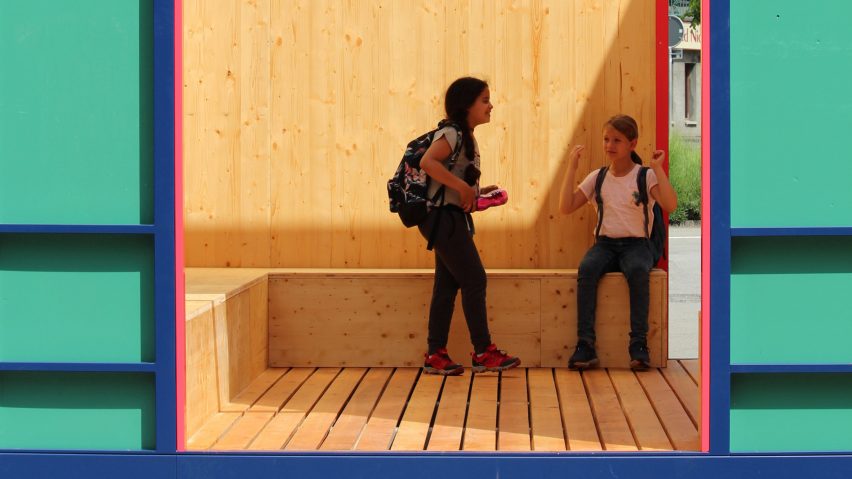
Rotative Studio brightens Swiss town square with modular wooden pavilions
Architecture firm Rotative Studio has created three colourful temporary pavilions for reading and socialising in the Place du Marché square in Aigle, Switzerland.
Called Three Pavilions, the structures are designed to be "a playful intervention that could help revitalise the Place du Marché", a square in the middle of the historic town.
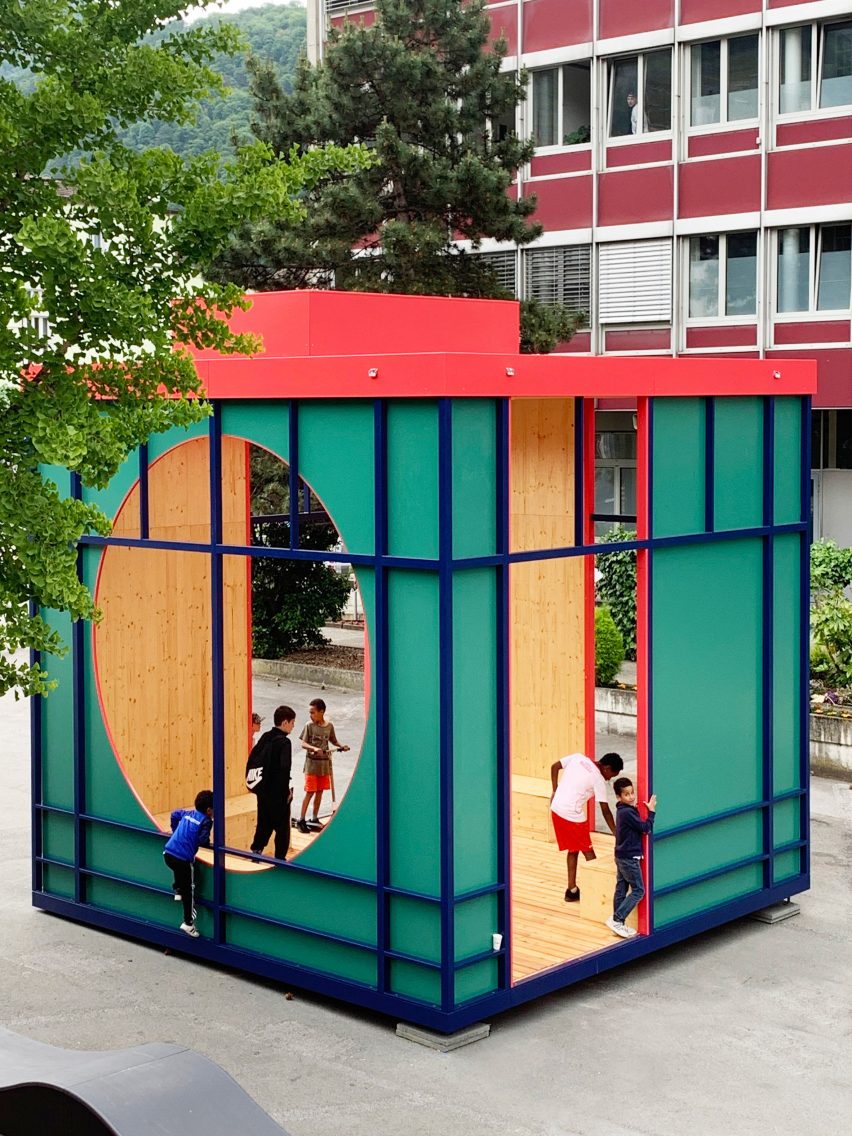
"This square will undergo a transformation during the next years, to become greener and more pedestrian-friendly," Caterina Viguera, co-founder of Rotative Studio, told Dezeen.
"This work is not only about the design and layout of the pavilions but as much about the plan to revitalize the Place du Marché, to reinterpret what is there," she added.
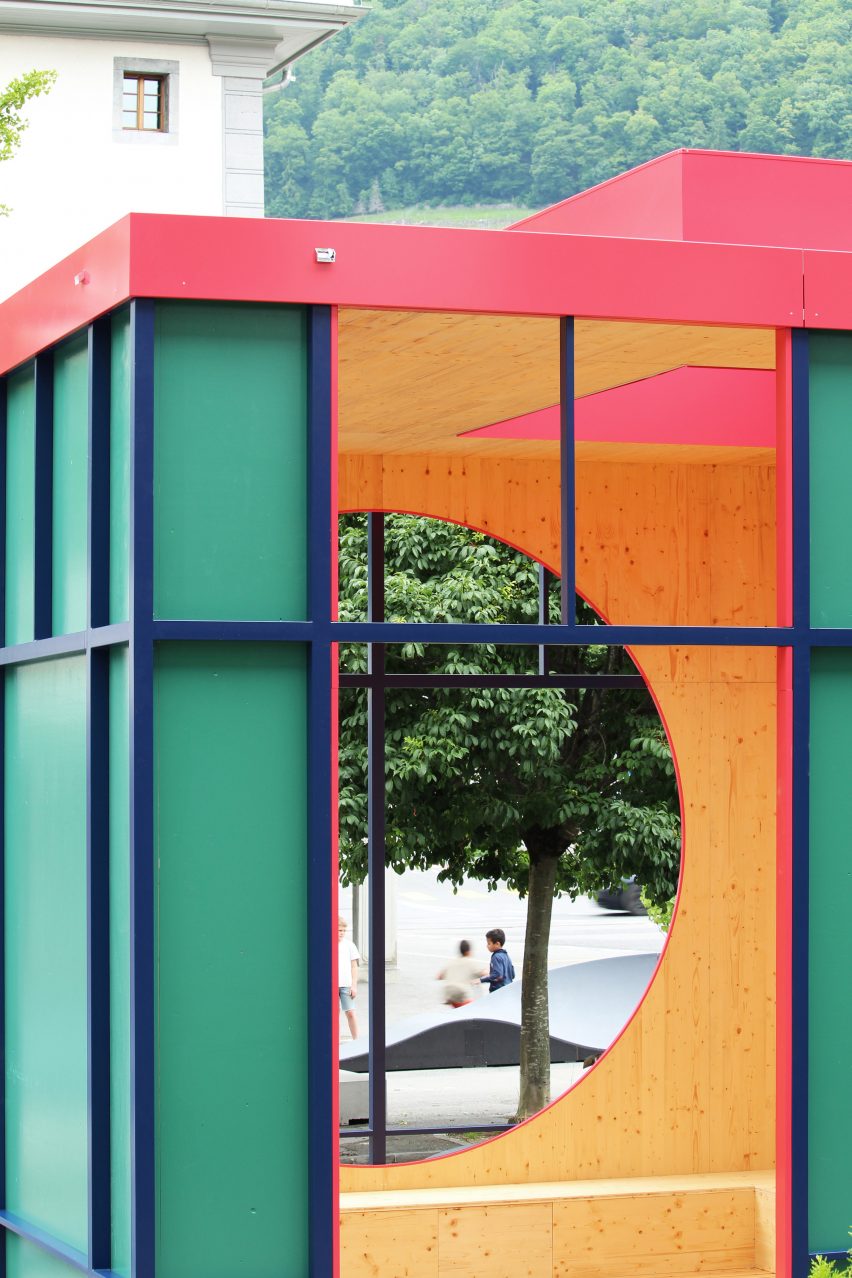
The Three Pavilions are constructed from steel, with Méranti plywood facades and larchwood flooring and furniture. Aluminium was used around the openings to protect the structures from water damage.
Rotative Studio chose these materials for their strength and durability, which was especially important as the structures were built on-site. After seven years, the pavilions will be relocated to another location in the city.
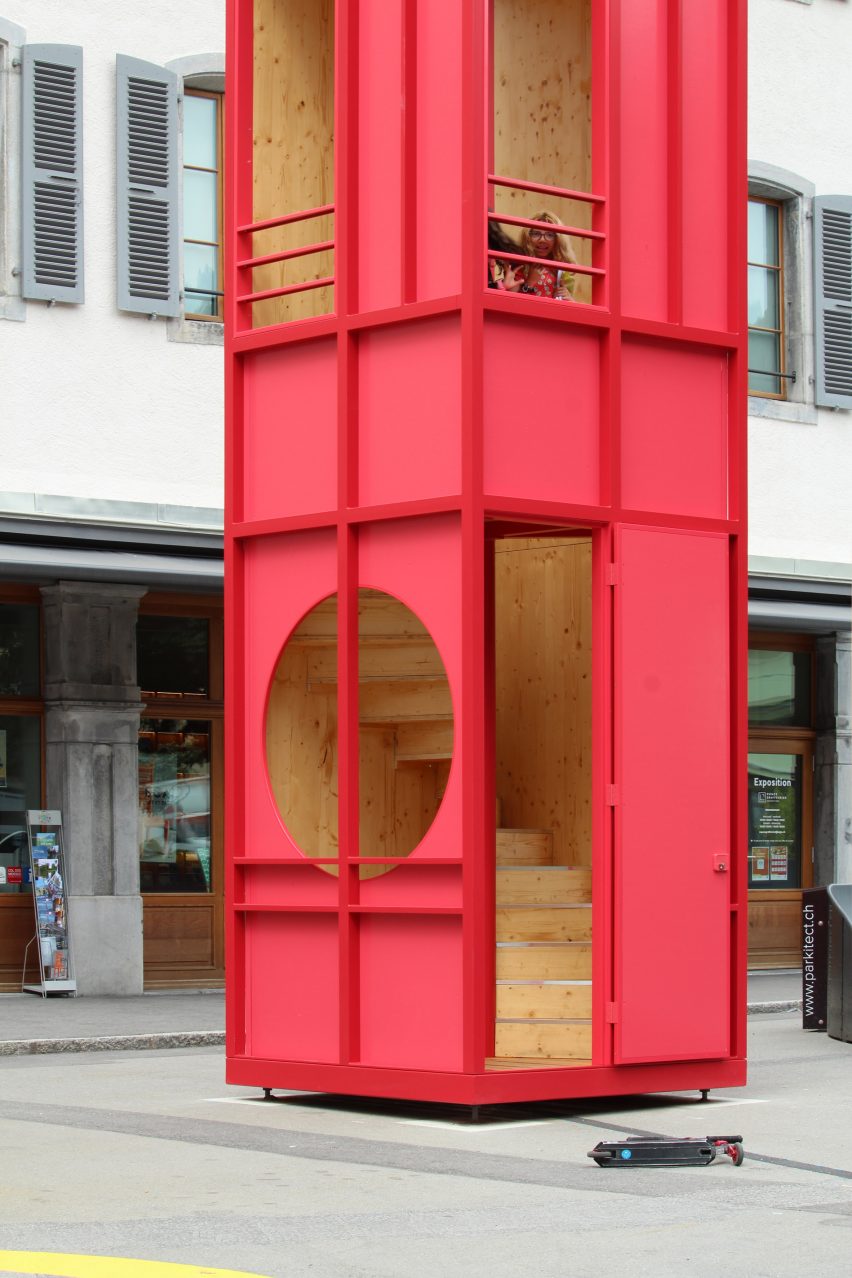
"The pavilions are built in a modular way, to make the assemblage and dissemble simple," Viguera explained. "Designed as a modular system, the pavilions are prepared in the atelier of the local maker and transported and assembled on-site."
"The combination of steel and wood ensures makes this possible and ensures their durability and resistance in time," she added.
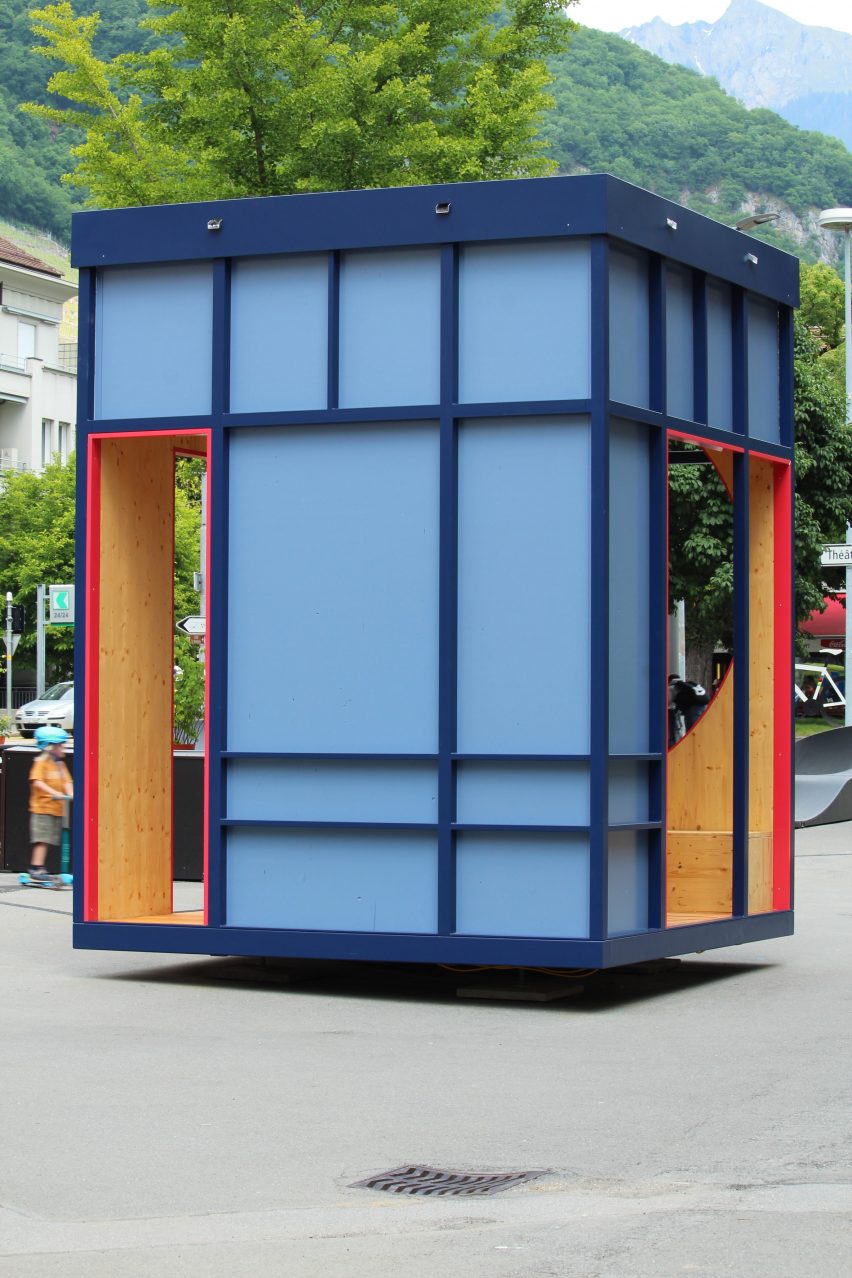
The smallest pavilion is six meters tall and has a curving staircase with a viewing platform at the top. Locals who climb to the top can take in views of the nearby Alps, as well as the wine fields around the town.
The blue pavilion is home to a library of books stored on shelves behind glass sliding doors. It also holds a large table and a bench where visitors can sit to read.
The green pavilion, which is the largest and has a footprint of six by five meters, has benches all around the inside and an empty space in the middle for community events such as plays or theatre performances.
A large opening in the ceiling allows light to enter and visitors to look up at the sky above. A set of wooden stools can be placed both inside and around all of the structures.
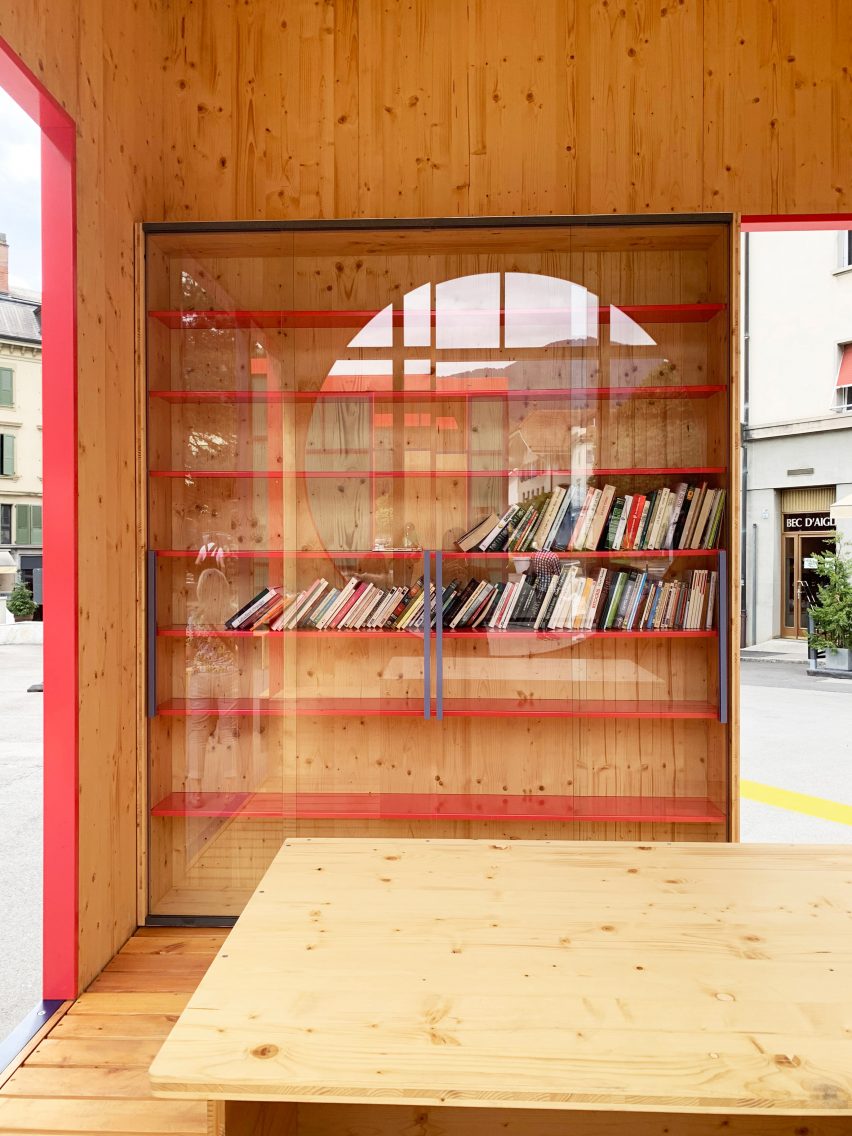
Each of the three wood-and-steel structures incorporates covered areas, steps and large openings that are accessible from all sides to reframe how both adults and children interact with the surrounding landscape.
"The locals are currently using the pavilions in different ways – they organise concerts, theatre plays, wine testings by the local winemakers and workshops between multidisciplinary groups," said Viguera.
"The children are the ones who have appropriated the structures the most: they usually arrive at the square after school, and play with the structures in multiple ways."
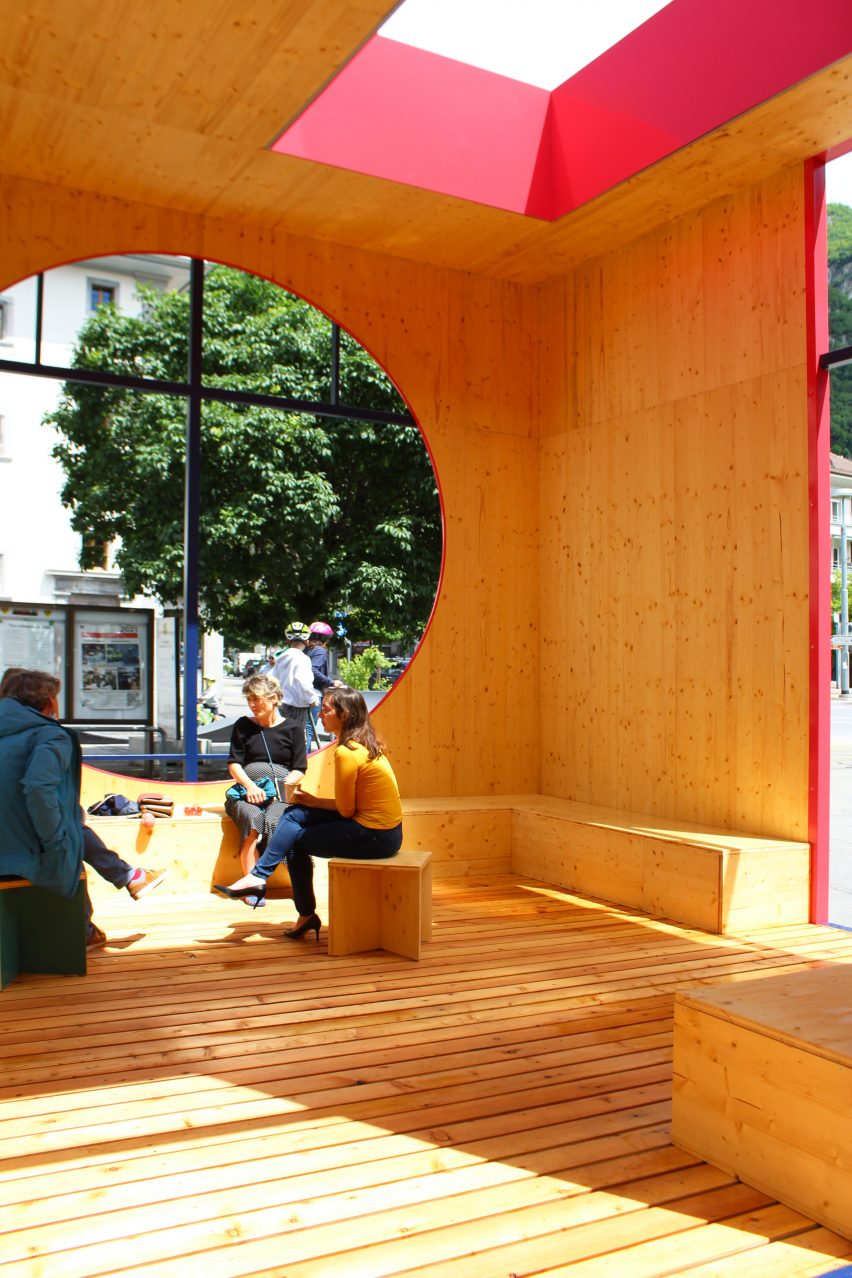
Each structure has a different colour palette, made up of the three primary colours red, green and blue with decorative geometric lines. The architects hoped that the bright colours would add some vibrancy to the otherwise full public square.
"A strong colour palette of red, blue and green tones introduces a new identity to the square, in dialogue with the context," said the studio.
At night, the interior of the pavilions is illuminated, making them a safe space to enter in the evening.
Other recently designed pavilions include a structure designed by Kengo Kuma made from live bamboo and a pavilion informed by chocolate by architecture studio Wutopia Lab in Shanghai.
The photography is courtesy of Rotative Studio.
Project credits:
Client: Commune d’Aigle, department d’urbanisme, mobilité et paysage
Built by: Guarnaccia Constructions